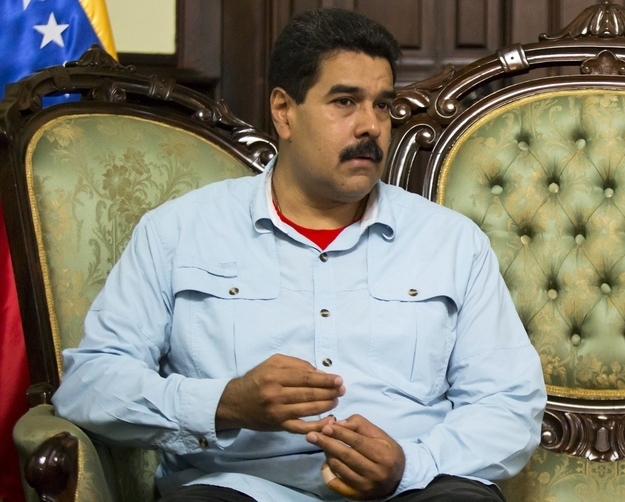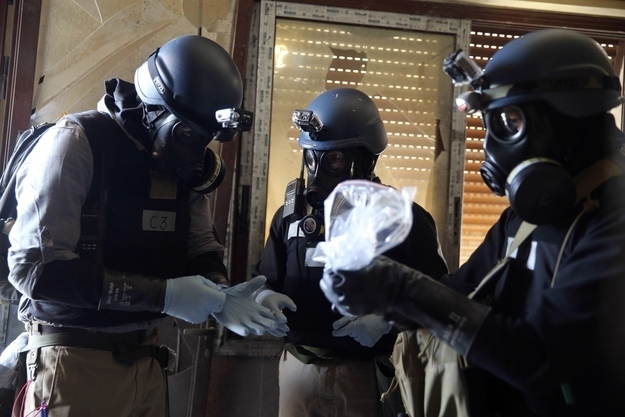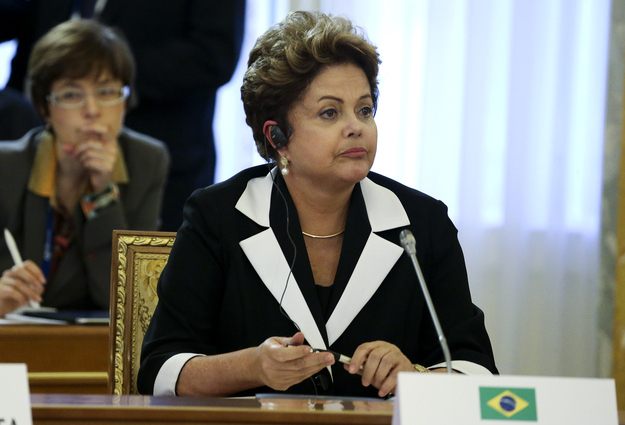Will President Barack Obama shake hands with Iranian President Hassan Rouhani?

Thousands of eyes will be following President Obama and President Rouhani to see if the two leaders manage to bump into each other in the hallways of the U.N.
Even a brief "good morning" or "good night" would be seen as a major step forward between Iran and the West. An actual handshake could mean that the Iranian nuclear issue is finally on course to being resolved, say regional experts.
President Rouhani has taken a moderate tone in public speeches this week, even writing an op-ed in the Washington Post that led many to believe he was ready to negotiate and that he has the backing of Iran's Ayatollah Khomeini.
The White House has said there are "no plans" for the two leaders to meet, but appear to have left open the possibility of a meeting on the sidelines. Secretary of State John Kerry will see his counterpart, Iranian Foreign Minister Javad Zarif, during a meeting on Iran's nuclear issue on Wednesday, the most high-level contact between the two countries since the Iranian Revolution of 1979.
Will Sudan's President Omar al-Bashir actually come?

Bashir is currently wanted by the International Criminal Court for war crimes, specifically on charges that he was responsibly for genocide in Sudan. Still, on Sunday, Bashir announced that he would attend the U.N. General Assembly in New York, and that he had even booked a hotel.
It's unclear if Bashir has a visa to enter the US, especially since the White House has repeatedly called for him to face justice over the decades-long conflict in Sudan's Darfur region. But Bashir has claimed that he's "not worried" that U.S. authorities will arrest him, since the U.S. isn't a member of the International Criminal Court (ICC) at the Hague. The ICC has issued multiple arrest warrants for Bashir, but he has limited his travel to African and Arab countries that don't have a relationship with the ICC.
"Nobody in the U.S. can question me or hold me," said Bashir.
Still, some are saying the Sudanese leader may be overly confident. The U.S. has transferred ICC suspects to court before and human rights groups are already placing pressure on immigration authorities to seize the chance to deport Bashir.
Will Venezuelan President Nicolas Maduro be allowed into the US?

President Maduro is accusing the U.S. government of putting up logistical obstacles to prevent his delegation from attending the U.N General Assembly.
U.S. officials said they had initially rejected the Venezuelan President's flight plan—which included flying over Puerto Rico, which is American airspace, on his way to China this weekend – because his government made the request on short notice. There was also apparently some confusion over what kind of plane he would fly.
U.S. officials said this weekend that that they reached an agreement with Venezuelan officials over the flight path, but Maduro's office has not yet confirmed that he will travel to New York. Venezuelan officials have also accused the U.S. of orchestrating a problem with Maduro's flight plan as "payback" for their country offering asylum to NSA whistleblower Edward Snowden earlier this year.
Will the U.N. come to an agreement on how to destroy Syria’s chemical weapons stockpiles?

Secretary of State John Kerry has already announced that the U.S. must seize the opportunity of the upcoming UN summit to reach a binding resolution on Syria's vast chemical weapons stockpiles.
"We have to recognize that the world is watching to see whether we can avert military action and achieve through peaceful means even more than what those military strikes promise," Kerry said.
It seems simple enough – the framework for the deal has already been agreed upon by the U.S. and Russia – but as the threat of military action in Syria has faded, so has the initial goodwill by Syria to go forward with the agreement.
In an interview with China's State TV Monday, Syrian President Bashar al-Assad signaled he wasn't happy with the arrangement.
"I want to say, by submitting the draft to the U.N. Security Council, or by urging the U.S. and Russia, to agree on a deal, the U.S., France, and Britain are just trying to make themselves winners in a war against a Syria which is their imaginary enemy," said Assad.
Assad also said that he was "confident" that his long-time allies, China and Russia, would ensure that "any excuse for military action against Syria will not stand."
That comment was a reference to what is known in the U.N. as Chapters 6 and 7, which allow the international community to set consequences for Syria if it does not comply with the agreement to destroy its chemical weapons. Syria is counting on Russia and China to
Will Brazil embarrass the U.S. at the UN?

Dilma Rousseff, the president of Brazil, has said that she could her use her speech at the U.N. to rally against online espionage, especially by the U.S. In the last few weeks it was revealed that the NSA targeted Rousseff, spying on the president's office as well as the Brazilian oil company Petrobras. The latter could qualify as economic espionage, said Rousseff, who added that she was waiting for a full investigation into NSA activities in Brazil before taking judicial action against the U.S.
Rousseff has already cancelled an upcoming state visit to the Washington, saying that "given the proximity of the scheduled state visit to Washington - and in the absence of a timely investigation of the incident, with corresponding explanations and the commitment to cease the interception activities" it could not go ahead as planned.
Rousseff could now use her time in the U.N. to push for Brazil to extricate itself from the influence of U.S. tech giants and lure other countries in to doing the same.
